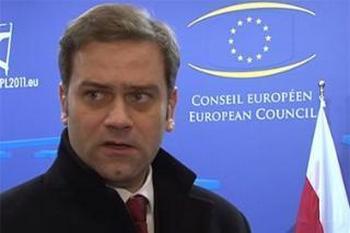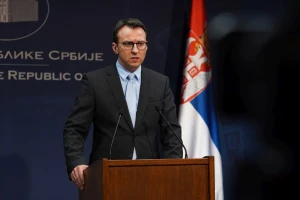- Serbia
Get to know Serbia
- Citizens
Culture and science
Health services
Pension and disability insurance
- Business
Employment
Economy
- Media
- Government
- Contact
Keep in touch
Contact form
Back
Keepin touch
Whether you have a question, comment, suggestion or any problem in the purview of the government, send us your message and we will try to respond as soon as possible. If your problem is not in our purview, we will forward your message to the relevant institution.
Q:
A:
Agreement on administrative crossings reached
Belgrade/Brussels,
3 December 2011
Head of the Serbian team for dialogue with Pristina Borislav Stefanovic today affirmed that agreement has been reached about integrated control of administrative crossings in Kosovo-Metohija in line with UN Security Council Resolution 1244 and the Serbian Constitution.
Speaking at a press conference at the Serbian mission in the EU, Stefanovic said that the two sides failed to reach an agreement last night, but that after that the Belgrade delegation was given guarantees and details about the crossings.
There was no agreement last night, but in the meantime we were given guarantees and details about the crossings, therefore I can now say that we have reached an agreement and that it will be enforced as soon as the relevant state organs adopt it and its implementation becomes possible, Stefanovic stated.
He noted that agreement was reached because the EU provided guarantees concerning the free movement of Serbian citizens from the province to and from Serbia with Serbian licence plates and documents.
There will not be two check points at crossings or any symbols of the self-proclaimed Pristina authorities, Stefanovic explained, adding that officers of the Serbian Ministry of Finance and the Ministry of the Interior will be stationed at the crossing points, in line with UN Security Council Resolution 1244.
Jarinje and Brnjak crossings will have a special status and will be under EULEX’s jurisdiction, he said, adding that EULEX will have executive authorisations in line with the Action Plan, adopted by the EU Council of Ministers in 2008.
As for Pristina’s side, only members of the Kosovo police and customs witnesses will be stationed at the crossing points to observe EULEX’s actions, he explained.
The head of the Serbian team underlined that customs witnesses will not have executive authorisations, stressing that this solutions fully complies with the Serbian Constitution and Resolution 1244.
The agreement does not refer to any fiscal or income-related provisions, and this issue will be debated in a later stage of dialogue, Stefanovic explained adding that the agreement envisages the signing of a technical protocol between the EU and Serbia and the EU and Pristina authorities.
This agreement strengthens Serbia’s position prior to the decision on granting Serbia EU candidate status, he remarked, reiterating that there will be no state symbols at the crossings, although Pristina insisted on that.
The main stumbling block in the talks had been Pristina’s attempt to impose recognition of the administrative line as a state border and its symbols, but it was unsuccessful.
As for Pristina’s regional representation, Stefanovic said that there are no answers to this issue yet, although the two delegations have come somewhat closer to each other’s stances.
The talks will resume next week via video link, he added.
There was no agreement last night, but in the meantime we were given guarantees and details about the crossings, therefore I can now say that we have reached an agreement and that it will be enforced as soon as the relevant state organs adopt it and its implementation becomes possible, Stefanovic stated.
He noted that agreement was reached because the EU provided guarantees concerning the free movement of Serbian citizens from the province to and from Serbia with Serbian licence plates and documents.
There will not be two check points at crossings or any symbols of the self-proclaimed Pristina authorities, Stefanovic explained, adding that officers of the Serbian Ministry of Finance and the Ministry of the Interior will be stationed at the crossing points, in line with UN Security Council Resolution 1244.
Jarinje and Brnjak crossings will have a special status and will be under EULEX’s jurisdiction, he said, adding that EULEX will have executive authorisations in line with the Action Plan, adopted by the EU Council of Ministers in 2008.
As for Pristina’s side, only members of the Kosovo police and customs witnesses will be stationed at the crossing points to observe EULEX’s actions, he explained.
The head of the Serbian team underlined that customs witnesses will not have executive authorisations, stressing that this solutions fully complies with the Serbian Constitution and Resolution 1244.
The agreement does not refer to any fiscal or income-related provisions, and this issue will be debated in a later stage of dialogue, Stefanovic explained adding that the agreement envisages the signing of a technical protocol between the EU and Serbia and the EU and Pristina authorities.
This agreement strengthens Serbia’s position prior to the decision on granting Serbia EU candidate status, he remarked, reiterating that there will be no state symbols at the crossings, although Pristina insisted on that.
The main stumbling block in the talks had been Pristina’s attempt to impose recognition of the administrative line as a state border and its symbols, but it was unsuccessful.
As for Pristina’s regional representation, Stefanovic said that there are no answers to this issue yet, although the two delegations have come somewhat closer to each other’s stances.
The talks will resume next week via video link, he added.
-
 Belgrade, 11 July 2025
Belgrade, 11 July 2025Aid to families in Kosovo and Metohija who suffered damage from fires
-
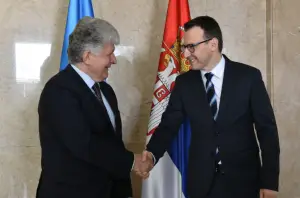 Belgrade, 10 July 2025
Belgrade, 10 July 2025Serbs in Kosovo and Metohija existentially threatened, disenfranchised
-
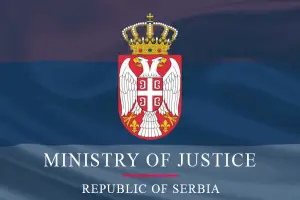 Belgrade, 19 June 2025
Belgrade, 19 June 2025Priština once again gravely violates basic human rights of Serbs in Kosovo and Metohija
-
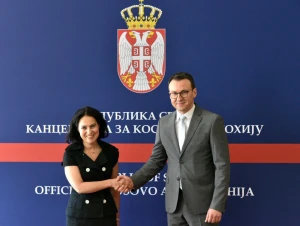 Belgrade, 13 June 2025
Belgrade, 13 June 2025Constant violent acts of Priština against Serbian people in Kosovo and Metohija
-
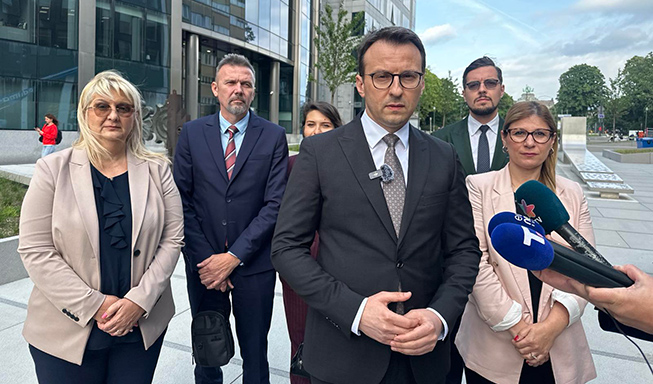 Belgrade/Brussels, 10 June 2025
Belgrade/Brussels, 10 June 2025Formation of Community of Serb Municipalities, de-escalation of situation in north of Kosovo and Metohija a priority
-
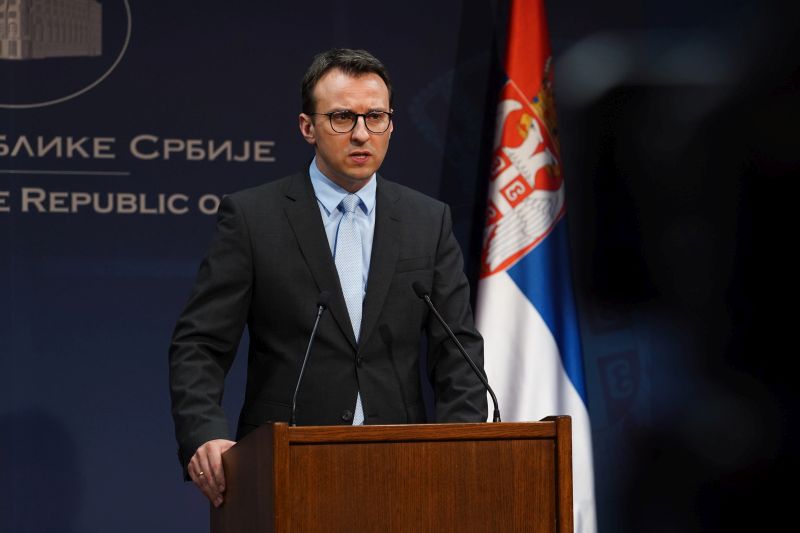 Belgrade, 27 May 2025
Belgrade, 27 May 2025“Kosovo police” raid premises of Leposavić Sports and Tourism Organisation
-
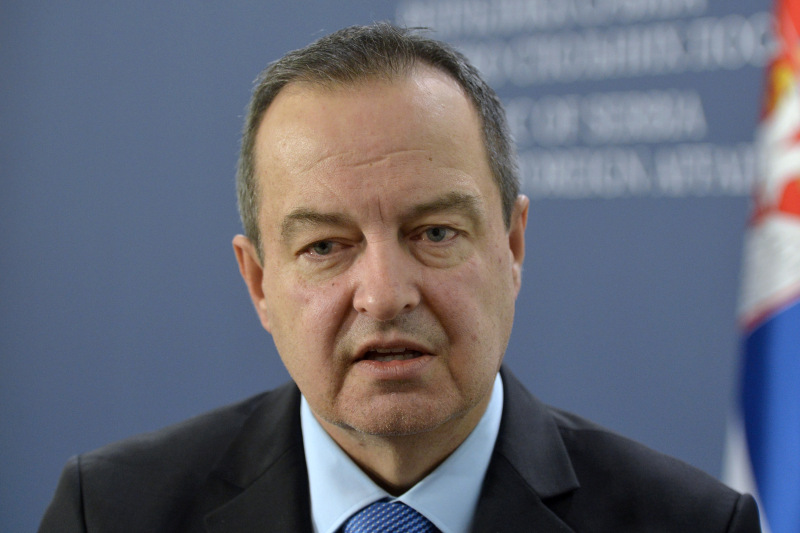 Belgrade, 24 May 2025
Belgrade, 24 May 2025Arrest warrant issued for attacker on Serbian high school graduate in North Mitrovica
-
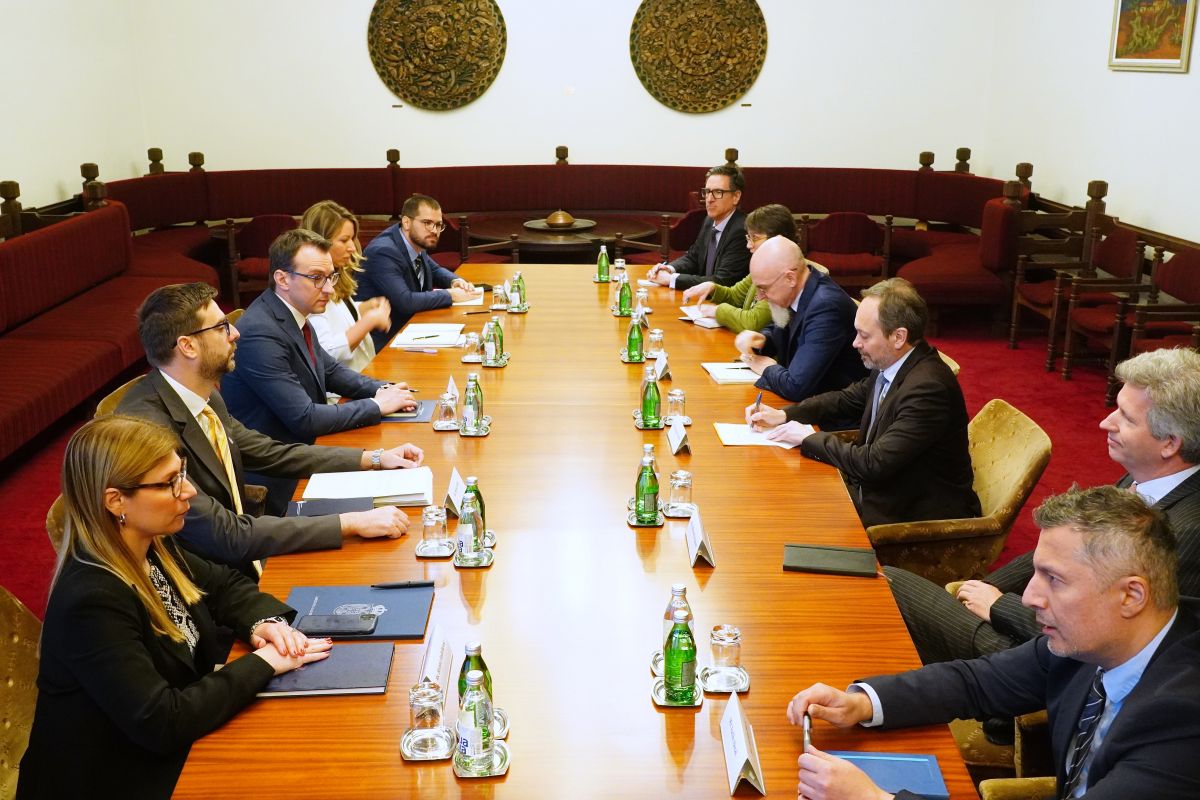 Belgrade, 15 May 2025
Belgrade, 15 May 2025De-escalation priority topic in dialogue with Priština
-
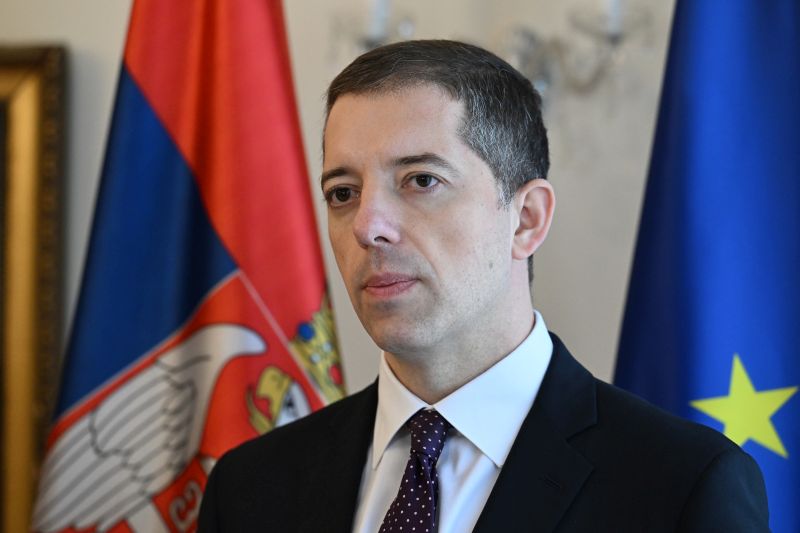 Belgrade, 13 May 2025
Belgrade, 13 May 2025Strongest condemnation of raid by Priština representatives on Vodovod Ibar

